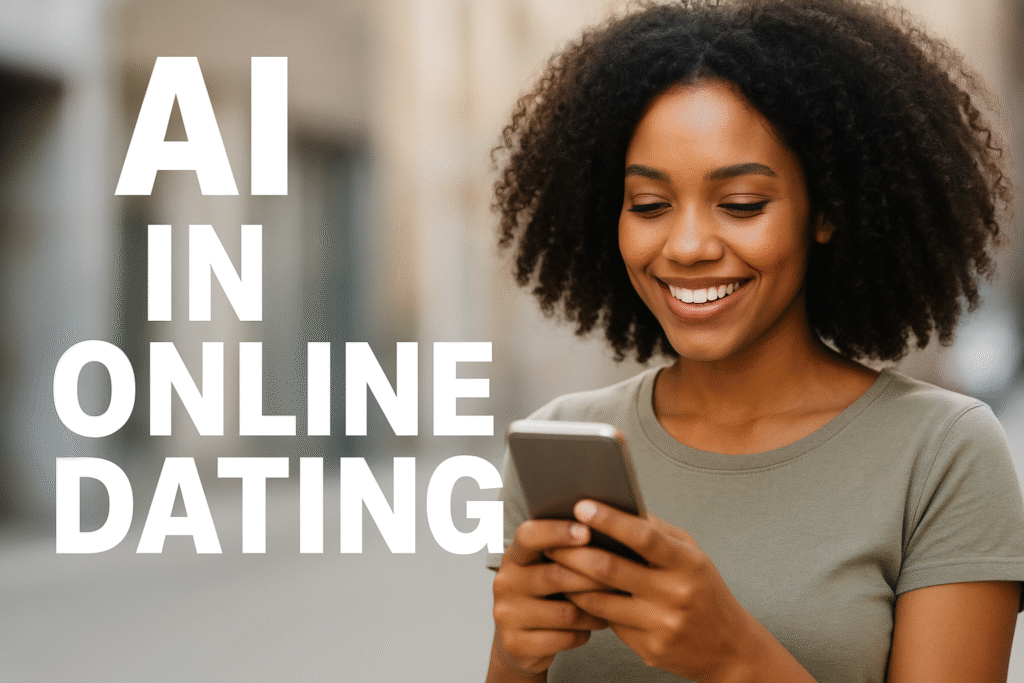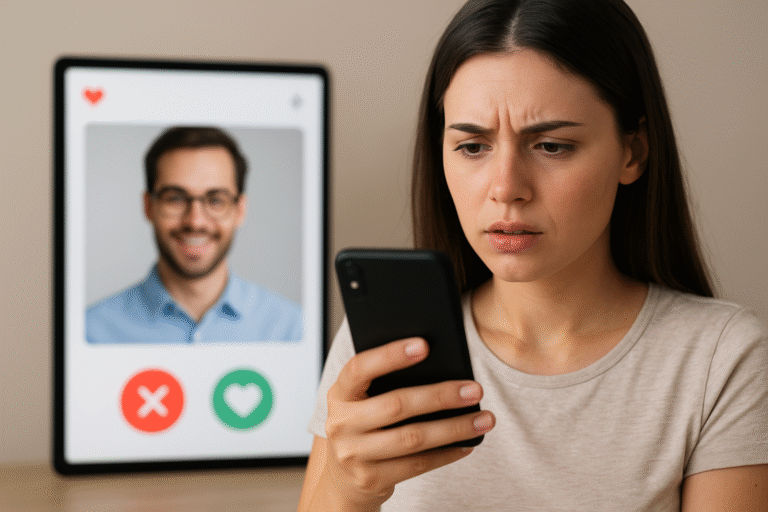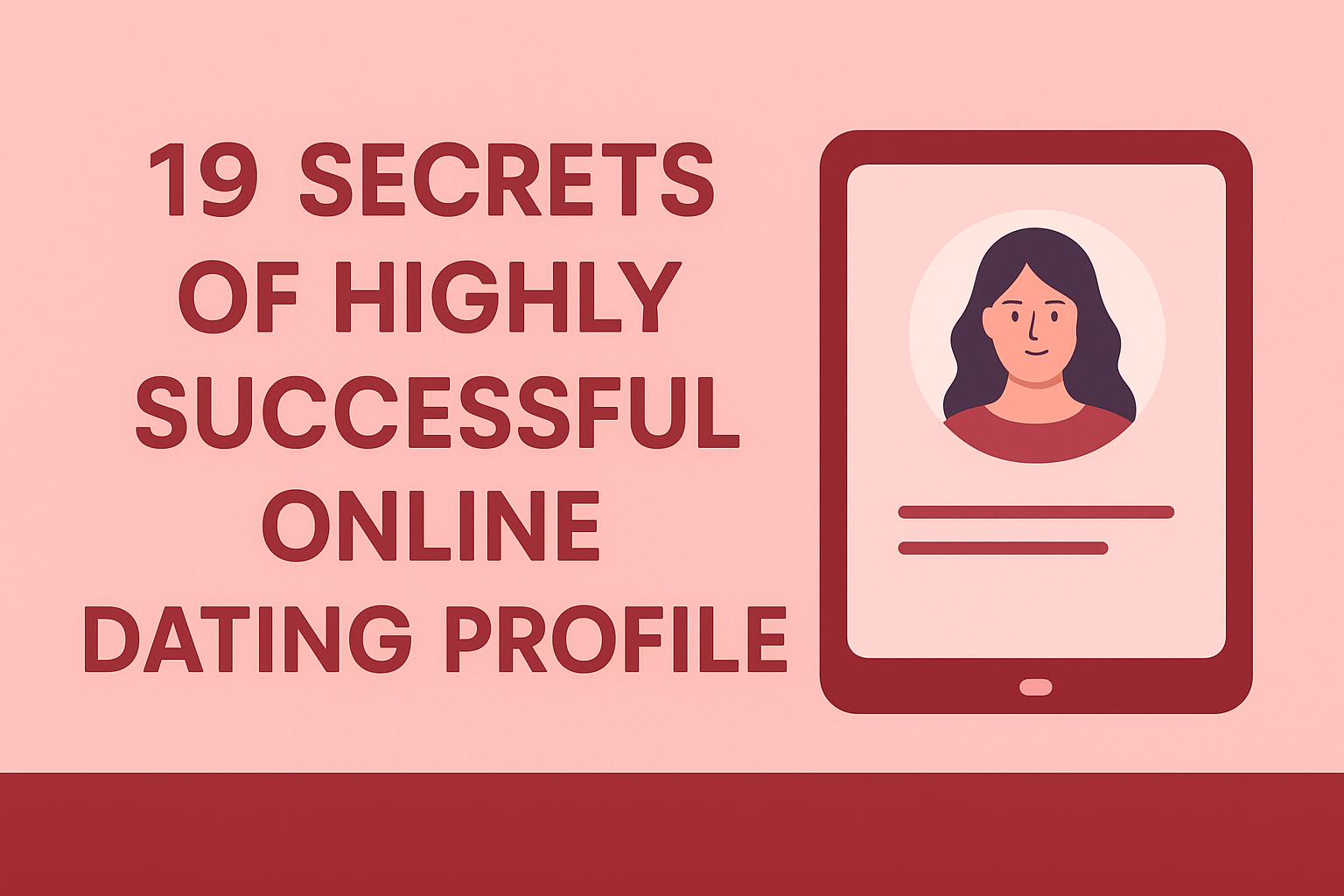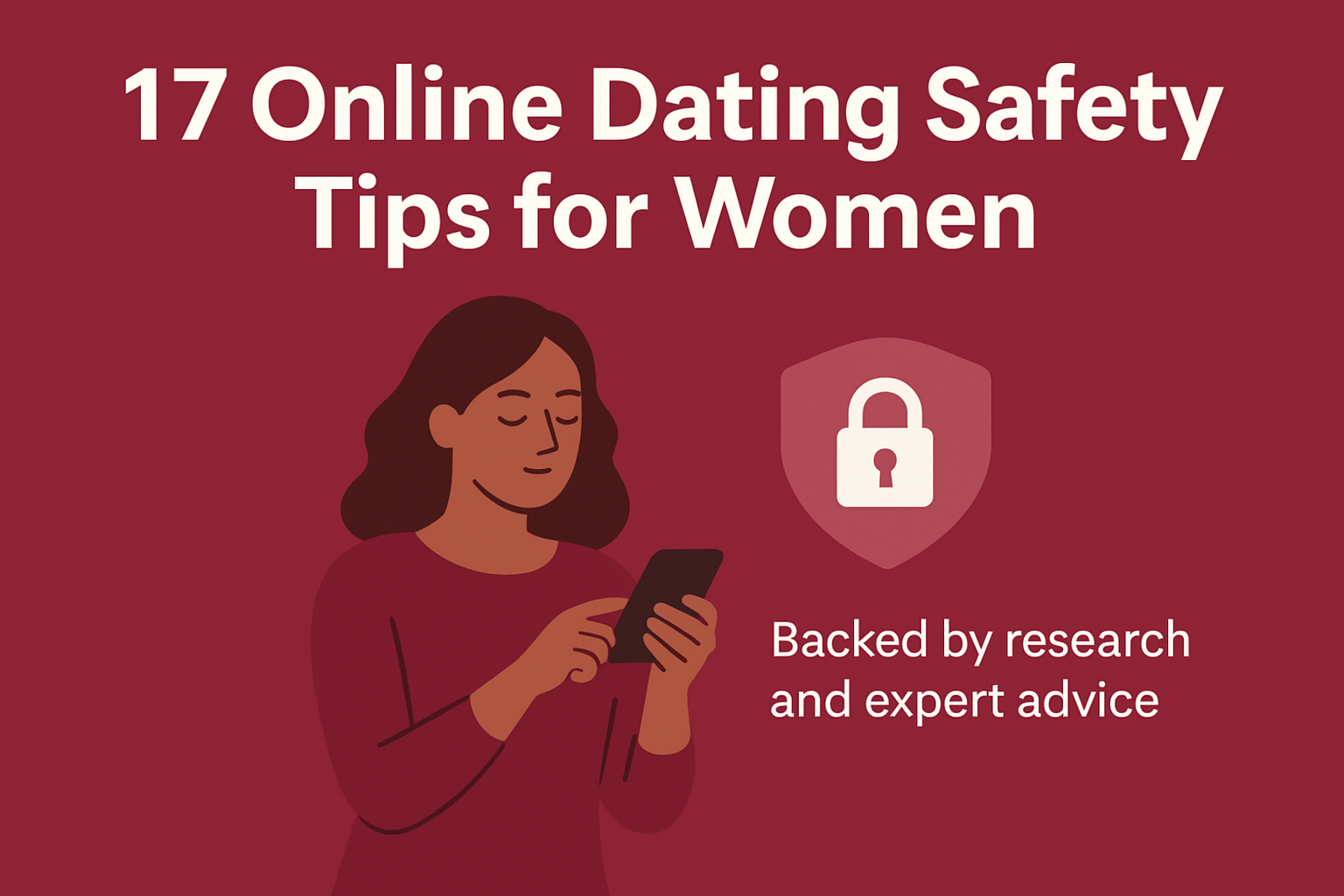AI in Online Dating is changing the way we swipe, match, and even deal with rejection. If you’ve ever spent hours swiping, matched with someone you thought was promising, and then got ghosted after two awkward texts, you know how brutal online dating can be. It’s not just you. Studies show ghosting has become one of the most common complaints in digital dating.
But the game is changing. Artificial Intelligence (AI) is now being woven into dating apps at every level, from how matches are made to how conversations are encouraged. The big question: can AI actually help us get better matches and finally reduce ghosting?
In this article, we’ll break down what the latest research says, how apps are already using AI, where the tech is headed, and what it means for your love life.
Why AI Is Taking Over Online Dating
Dating apps have always relied on algorithms to some extent, but AI has introduced a new level of sophistication. Instead of just matching you by age, location, and interests, AI tools now analyze:
- Your texting style (short replies vs. long paragraphs)
- Emotional tone in conversations
- Behavioral patterns like when you log in, who you swipe right on, and how quickly you reply
- Compatibility beyond bios using Natural Language Processing (NLP) to analyze profiles for shared values, not just shared hobbies
2023 study, “Computed compatibility: Examining user perceptions of AI and matchmaking algorithms” (Paul & Ahmed), found that users who perceive AI-driven matchmaking as fair, socially aware, and trustworthy report higher satisfaction and greater willingness to engage with matches. Suggesting that user trust in AI influences dating outcomes.
In short, AI is making dating apps less random and more intentional.
Smarter Matches: How AI Finds Chemistry
Traditional dating apps felt like throwing darts in the dark. AI is shifting this by drawing on psychology, data science, and machine learning. Here’s how:
1. Personality Prediction
Big Five Personality Trait Prediction Based on User Comments” (2025), Shum, Ptaszynski & Masui used transformer models (RoBERTa & BERT) on Reddit comment data and showed that language from online comments can indeed be used to infer Big Five personality traits with moderate performance.
2. Emotional Intelligence
Apps like Iris Dating and AI-driven Hily use machine learning to analyze what types of profiles you actually engage with, rather than just what you say you want. For instance, you may list “funny” as a preference, but the app learns you actually respond more to witty sarcasm than cheesy jokes. This reduces the “paradox of choice” and surfaces people you’re more likely to vibe with.
3. Predicting Long-Term Compatibility
A 2021 Journal of Social and Personal Relationships study found that AI-driven similarity scores (values, humor style, conflict resolution patterns) were more predictive of long-term satisfaction than physical attraction alone. This suggests that AI is better at recognizing the deeper qualities that sustain a relationship, not just spark short-lived attraction.
The idea isn’t just more matches. It’s a better match.
Why Ghosting Is So Common
Ghosting is painful because it leaves the other person with no closure. Instead of a polite “sorry, I don’t think we’re a fit,” you get silence.
A study published in the International Journal of Indian Psychology explains that ghosting thrives in online spaces because it’s easy, safe, and avoids confrontation. Another paper in MDPI Behavioral Sciences highlights that the very structure of asynchronous messaging makes ghosting simple. You don’t have to face the person; you can just disappear.
So ghosting isn’t just bad manners. It’s baked into the design of dating apps. Too many matches, too little accountability, and minimal emotional investment all make ghosting the path of least resistance.
How AI Is Changing the Rules
Now enter AI. Apps are betting big on artificial intelligence to make dating less frustrating and more efficient. Here’s how it’s already being used:
1. AI matchmaking
Forget random swiping. AI models can now analyze your preferences, behavior, and even micro-choices (like which profile pics you pause on longer) to predict compatibility.
- Iris Dating uses AI to learn your taste in faces by letting you rate images until it recognizes your type.
- Tinder and Hinge are experimenting with machine learning models that refine who you see based on your responses.
A study from NTU found that users who believe matchmaking algorithms are fair and socially aware report higher satisfaction and trust. In other words, if people feel the system is smarter, they stick around longer.
2. AI profile optimization
Struggling to pick the right photo or write a bio that doesn’t sound like everyone else? AI tools are stepping in.
- Match Group, which owns Tinder, Hinge, and OKCupid, announced AI assistants that can suggest which photos to use and even help polish bios.
- Third-party apps like Rizz and YourMove AI act as digital wingmen, suggesting opening lines and conversation starters.
The goal is to make people put their best foot forward without hours of second-guessing.
3. AI conversation support
The first message can make or break a match. That’s where AI comes in again. Apps are rolling out features that suggest icebreakers or identify shared interests to keep chats flowing.
Some early AI chat assistants even coach users in real time, giving tips on tone and phrasing. While it might feel odd to get advice from a bot, the hope is that it helps conversations feel more natural and prevents them from dying after two lines.
4. Anti-ghosting nudges
Hinge’s “Your Turn” feature is a great example. It reminds you when it’s your move in a conversation. This reduces situations where chats go cold because someone forgot to reply.
AI is taking this further. New systems are being trained to detect when a conversation is about to fizzle. If someone stops replying, the app may nudge them to either send a message or close the chat officially, giving both sides closure.
What the Research Shows
So, does any of this actually work? Let’s look at the evidence:
- Improved satisfaction: The NTU study shows people are more likely to engage seriously with matches when they trust the AI system behind them.
- Better response rates: Hinge reports that its reminders have boosted timely replies and reduced ghosting. When users respond within 24 hours, the chance of a real-life date goes way up.
- More engagement: Apps with AI profile tools see higher engagement. People who optimize their photos and bios with AI often get more likes and messages.
But there are limitations. AI can’t force chemistry, and authenticity matters. Reports from The Washington Post suggest that users sometimes feel AI-assisted conversations are “too polished,” raising concerns about whether they’re connecting with a person or their algorithm.
Risks and Ethical Concerns
AI in dating isn’t perfect. Here are the biggest concerns experts are raising:
- Authenticity: If AI writes your bio, picks your photos, and suggests your replies, where are you in all of this? Over-reliance could make interactions feel robotic or misleading.
- Bias: AI models are trained on data that may include racial, gender, or cultural biases. That means some groups might get shown less often or judged unfairly.
- Transparency: Should users know if the person they’re chatting with is using AI? Apps are still figuring out disclosure rules. Without transparency, trust could take a hit.
- Dependency: Psychologists warn that if people become too dependent on AI coaches for conversations, they may lose confidence in real-world social interactions.
How AI Can Actually Reduce Ghosting
Let’s get practical. Here are the main ways AI is helping to tackle ghosting directly:
- Smarter matches: Pairing people with higher compatibility increases the odds of meaningful chats.
- Profile improvements: Better photos and bios attract genuine interest, reducing “low-effort” matches that lead nowhere.
- Conversation nudges: Reminders and suggestions keep the momentum going.
- Closure options: AI prompts can encourage users to formally end a chat instead of disappearing.
- Predictive signals: Algorithms can detect when one person is losing interest and step in with prompts or suggestions.
In short, AI is tackling ghosting by removing friction points and promoting accountability.
Case Studies: AI-Powered Dating Apps in 2025
Tinder’s AI Matchmaker
In late 2024, Tinder quietly rolled out “Tinder Matchmaker AI,” which allows friends or family to evaluate potential matches with AI input. The AI suggests profiles aligned with your patterns and reduces swipe fatigue.
eHarmony’s AI Compatibility Model
eHarmony now uses AI to update compatibility scores dynamically based on how two people interact after being matched. If conversations are flowing well, the system nudges them to meet sooner.
Bumble’s AI Safety Features
Bumble introduced AI-driven photo verification and hate-speech detection. It doesn’t just keep catfish away; it ensures a safer space where ghosting due to “suspicious vibes” is less likely.
The Future of AI in Online Dating
We’re only at the beginning. Here’s what experts expect to see in the next five years:
- Generative AI for conversations: Instead of just suggesting a line, AI may simulate full conversations, easing users into real chats.
- Deeper psychological matching: Expect AI to go beyond looks and hobbies. Personality traits, attachment styles, and emotional intelligence may soon be part of matchmaking.
- Voice and video AI: With voice-first apps already gaining traction, AI could analyze tone, speech patterns, or even video interactions to improve matching.
- Enhanced safety: AI will play a major role in spotting fake profiles, scammers, and deepfakes, making platforms safer.
- Regulation: Governments are starting to pay attention. Privacy, bias, and fairness rules for dating AI are likely coming. Apps that adapt responsibly will win user trust.
Conclusion – AI in Online Dating
AI is reshaping online dating in real time. Smarter matchmaking, profile optimization, conversation support, and anti-ghosting features are already changing how people connect. Research shows these tools can improve satisfaction, reduce ghosting, and make the process less exhausting.
But we should also be cautious. Authenticity, bias, and transparency need to stay front and center. At the end of the day, AI can guide us toward better connections, but real relationships still depend on honesty, effort, and human chemistry.
So if you’re frustrated with ghosting and tired of dead-end swipes, don’t be surprised when your favorite dating app rolls out more AI features. They might just make your search for love a little smoother, and maybe, finally, less ghost-filled.
FAQs About AI in Online Dating
Is AI really making dating apps better?
Yes. Studies show AI improves satisfaction with matches by 30% or more compared to standard swiping systems.
Can AI stop ghosting?
AI reduces ghosting by flagging fading conversations, deprioritizing chronic ghosters, and coaching better communication. It won’t eliminate ghosting entirely, but it helps.
Which dating apps use AI in 2025?
Tinder, Bumble, Hily, Iris Dating, and eHarmony all have AI features, from smarter matching to safety verification.
Are there risks to AI dating?
Yes. Bias, privacy, and over-reliance on algorithms are real concerns. Users should balance AI assistance with genuine human judgment.
What’s the future of AI in dating?
Expect voice analysis, VR dates, AI coaches, and predictive relationship tools to dominate by 2030.
Will AI replace human connection?
Not at all. AI is meant to enhance the process, not replace emotions, chemistry, or real conversations.
Can AI protect against catfishing and scams?
Yes. Apps like Bumble and Tinder already use AI-driven photo verification and fraud detection to spot fakes faster than humans can.
Before you go, read aslo some articles from our blog below.
Dating App for Single Parents.
Signs a Dating App isn’t for you.
Types of Dating Apps in the Market Today
Ways to use social media to find love




